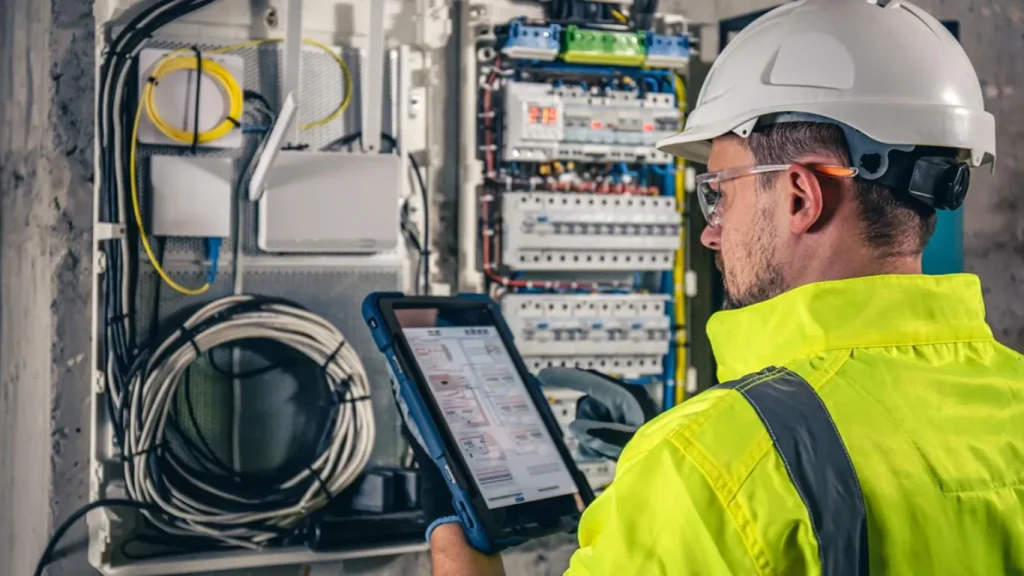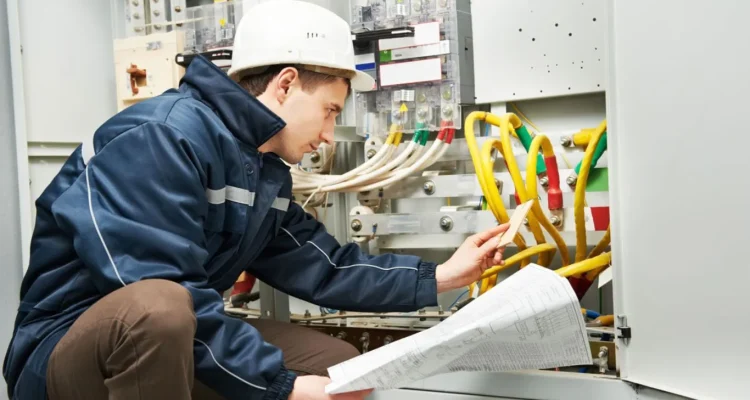Introduction
So, you’re gearing up for an electrical inspection, huh? Whether you’re a homeowner, a landlord, or a contractor, passing this inspection is crucial. But what exactly is an electrical inspection, and why is it so important?
An electrical inspection ensures that your electrical system is up to code and safe to use. It helps prevent electrical fires, shock hazards, and ensures your electrical work meets the regulatory standards. Failing this inspection can lead to delays, added costs, and in some cases, severe safety risks. Let’s dive into what could cause you to fail an electrical inspection and how to avoid those pitfalls.

Common Reasons for Failing an Electrical Inspection
Incorrect Wire Sizes
Using the wrong wire size is a common mistake. Each wire has a specific ampacity, which is the maximum amount of electrical current it can safely carry. If you use a wire that’s too small for the current load, it can overheat and potentially cause a fire.
Improper Grounding
Grounding is essential for safety. It provides a path for electrical current to flow back to the ground in case of a fault. Improper grounding can lead to electric shocks and equipment damage.
Overloaded Circuits
An overloaded circuit happens when more electrical load is placed on a circuit than it can handle. This can cause the circuit breaker to trip frequently, or worse, lead to overheating and fires.
Faulty Wiring Connections
Poor wiring connections are another common issue. Loose or improper connections can create resistance, leading to overheating and potentially causing a fire.
Inadequate Electrical Panels
Your electrical panel is the heart of your electrical system. An outdated or undersized panel can’t handle modern electrical loads, leading to potential failures and hazards.
Detailed Explanations of Common Failures
Incorrect Wire Sizes
Why Wire Size Matters
Wire size directly affects the amount of current it can safely carry. Using a wire that’s too small can lead to overheating and fires.
Common Wire Size Mistakes
Common mistakes include using 14-gauge wire where 12-gauge should be used, or 12-gauge where 10-gauge is needed. Always check the ampacity requirements for your circuits.
Improper Grounding
The Importance of Grounding
Grounding helps protect you from electrical shock and ensures any fault current flows safely to the ground.
Common Grounding Issues
Common issues include not connecting the ground wire to outlets or using improper grounding methods. Ensure all metal parts and receptacles are properly grounded.
Overloaded Circuits
What is Circuit Overload?
Circuit overload occurs when the demand for electrical current exceeds the circuit’s capacity.
Signs of Overloaded Circuits
Frequent tripping of circuit breakers, flickering lights, and buzzing outlets are signs of an overloaded circuit. Distribute electrical loads evenly across circuits to avoid this.
Faulty Wiring Connections
Dangers of Poor Connections
Loose or poor connections can cause arcing, leading to fires.
Common Connection Mistakes
Mistakes include using wire nuts incorrectly or failing to secure wires tightly. Always follow proper connection techniques.
Inadequate Electrical Panels
The Role of Electrical Panels
Electrical panels distribute electricity to different circuits. An inadequate panel can’t handle modern electrical loads, leading to potential hazards.
Signs Your Panel is Inadequate
If your panel frequently trips or is outdated (e.g., still using fuses instead of breakers), it’s time for an upgrade.
Less Common Reasons for Failing an Electrical Inspection
Unprotected Cables
Cables should be protected from physical damage. Running cables through walls without proper protection can lead to inspection failures.
Improper Use of Extension Cords
Extension cords are meant for temporary use. Permanent wiring should be used for permanent installations.
Lack of GFCI Outlets
Ground Fault Circuit Interrupters (GFCI) outlets are required in wet areas like kitchens and bathrooms. Not having these can lead to a failed inspection.
Improper Labeling of Breakers
Each breaker in your panel should be clearly labeled to indicate what it controls. Improper labeling can cause confusion and inspection failures.
Non-compliance with Local Codes
Electrical codes vary by location. Non-compliance with local codes can lead to a failed inspection. Always check and follow the local regulations.
Preventing Electrical Inspection Failures
Hiring a Qualified Electrician
A qualified electrician knows the codes and can ensure your installation meets all requirements. Don’t cut corners by trying to do it yourself if you’re not experienced.
Regular Maintenance and Inspections
Regular maintenance helps catch potential issues before they become major problems. Schedule periodic inspections to keep your system in top shape.
Staying Updated with Electrical Codes
Electrical codes are updated periodically. Staying informed about these changes helps ensure your system remains compliant.
FAQs
What happens if I fail an electrical inspection?
If you fail, you’ll receive a report detailing the issues. You must fix these problems and schedule a re-inspection.
Can I fix the issues myself?
If you’re experienced and knowledgeable about electrical work, you can. Otherwise, it’s best to hire a qualified electrician.
How often should I have my electrical system inspected?
It’s recommended to have your system inspected every 3-5 years, or whenever you notice any issues.
What are the most critical areas to check before an inspection?
Check wire sizes, grounding, circuit loads, wiring connections, and your electrical panel.
How can I find a qualified electrician?
Look for licensed electricians with good reviews and recommendations. Check with local trade organizations or online directories.
Conclusion
Passing an electrical inspection is not just about following the rules; it’s about ensuring the safety of your home or property. By understanding common reasons for failing an inspection and taking steps to address them, you can ensure a smooth inspection process. Remember, safety always comes first.


Congratulation!